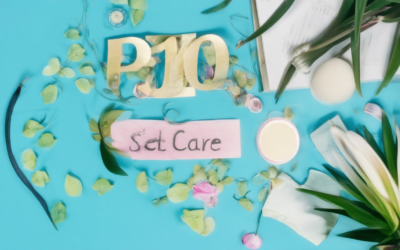Developing a compassionate relationship with oneself is crucial for achieving emotional balance and fostering deeper connections with others. Self-compassion, a concept pioneered by renowned psychologist Kristin Neff, involves treating oneself with kindness, understanding, and acceptance – much like one would offer to a close friend. By cultivating self-compassion through targeted exercises and practices, individuals can break free from the cycle of self-criticism and cultivate a more empathetic mindset, leading to improved mental well-being and stronger interpersonal relationships.

Exercising Self-Compassion
I believe that practicing self-compassion is essential for our overall well-being, and I’d like to share some effective ways to cultivate it.
-
Practice Mindfulness Meditation
Mindfulness meditation helps us become more aware of our thoughts, emotions, and physical sensations, allowing us to respond to challenging situations more skillfully. To get started, find a quiet and comfortable spot to sit, close your eyes, and focus on your breath. When your mind wanders, gently bring it back to your breath without judgment.
-
Engage in Physical Activity
Regular physical activity can boost our mood, reduce stress, and increase feelings of self-worth. Find an activity that brings you joy, whether it’s walking, running, swimming, or dancing, and aim to do it for at least 30 minutes a day.
-
Prioritize Sleep and Nutrition
Adequate sleep and nutrition are crucial for maintaining a healthy body and mind. Aim for 7-9 hours of sleep each night and focus on consuming whole, nutrient-dense foods like fruits, vegetables, whole grains, lean proteins, and healthy fats.
-
Practice Gratitude and Self-Forgiveness
Cultivating gratitude and self-forgiveness can help us develop a more compassionate relationship with ourselves. Take a few moments each day to reflect on the things you’re grateful for, and when you make mistakes, try to approach them with kindness and understanding rather than self-criticism.
-
Seek Social Support
Surrounding yourself with supportive people who encourage and accept you can greatly enhance your sense of self-worth and compassion. Reach out to friends, family, or a therapist for connection and support when needed.
Remember, self-compassion is a journey, and it’s okay to take it one step at a time. By incorporating these practices into your daily life, you’ll be better equipped to handle challenges with kindness, understanding, and patience – towards yourself and others.
The 3 Chair Exercise for Self-Compassion
I’ve learned a powerful technique called the 3 chair exercise, which helps me cultivate self-compassion and challenge my inner critic.
- Step 1: Identify Your Inner Critic
- Imagine sitting in a chair representing your inner critic, the voice that constantly judges and criticizes you.
- This voice might say things like “You’re not good enough,” “You’ll never succeed,” or “You’re a failure.”
- Step 2: Acknowledge Your Feelings
- Now, imagine sitting in a second chair representing the part of you that feels judged and criticized.
- Allow yourself to feel the emotions associated with these criticisms, whether it’s sadness, anger, or shame.
- Remember that these feelings are valid and deserve compassion.
- Step 3: Practice Self-Compassion
- Finally, imagine sitting in a third chair representing a wise, compassionate observer.
- This observer sees you with kindness and understanding, acknowledging your strengths and weaknesses.
- Practice speaking to yourself with this compassionate voice, saying things like “I’m doing the best I can,” “I’m worthy of love and respect,” or “I’m strong and capable.”
By practicing the 3 chair exercise, I’ve learned to develop a more compassionate relationship with myself and challenge my inner critic.
For more information on cultivating self-compassion, check out our article on self-care practices and mindfulness techniques.
Additionally, you may find it helpful to explore the work of Dr. Kristin Neff, a leading researcher on self-compassion, who offers resources and exercises to support your self-compassion journey.
Remember, self-compassion is a practice that takes time and patience to develop, but with consistent effort, you can cultivate a more loving and accepting relationship with yourself.

The Four Pillars of Self-Compassion
I’ve learned that cultivating self-compassion is essential for my overall well-being, and I’d like to share with you the four pillars that support this practice.
-
Self-Kindness vs. Self-Judgment
Practicing self-kindness means treating myself with the same kindness and care that I would offer to a close friend. This involves being gentle, understanding, and supportive towards myself, rather than judgmental and critical.
For example, when I make a mistake, I try to reframe it as an opportunity for growth and learning, rather than beating myself up over it. By doing so, I’m able to approach challenges with a sense of curiosity and openness, rather than fear and anxiety.
-
Common Humanity vs. Isolation
Recognizing that I’m part of a larger human experience helps me feel more connected and less isolated. This pillar encourages me to acknowledge that everyone makes mistakes, struggles with difficult emotions, and faces challenges – just like me.
When I remember that I’m not alone in my experiences, I’m better able to cultivate empathy and compassion for myself and others. This helps me develop a greater sense of community and connection, which is essential for my emotional well-being.
-
Mindfulness vs. Overidentification
Mindfulness is about being present in the moment, without getting caught up in thoughts or emotions. This pillar teaches me to observe my experiences without judgment, allowing me to stay grounded and centered, even in challenging situations.
By practicing mindfulness, I’m able to let go of excessive thinking and rumination, which can lead to feelings of overwhelm and anxiety. Instead, I’m able to approach life with a sense of calm and clarity, making it easier to navigate life’s ups and downs.
-
Emotional Awareness vs. Avoidance
Cultivating emotional awareness means recognizing and accepting my emotions, rather than trying to suppress or deny them. This pillar encourages me to explore my emotions in a safe and non-judgmental space, allowing me to understand and work through them in a healthier way.
By acknowledging and accepting my emotions, I’m better able to regulate my mood and respond to challenging situations in a more thoughtful and intentional way. This helps me develop greater resilience and emotional intelligence, which is essential for building strong relationships and achieving my goals.
By incorporating these four pillars into my daily life, I’ve found that I’m better able to cultivate self-compassion and live a more authentic, meaningful life. I hope that sharing my experiences with you will inspire you to explore these principles and discover the benefits of self-compassion for yourself.

Practicing Compassion for Yourself
Self-compassion is a powerful tool for cultivating emotional resilience and overall well-being.
-
Understanding Self-Compassion
-
Practical Strategies for Practicing Self-Compassion
Self-compassion involves treating yourself with kindness, understanding, and acceptance, especially during difficult times.
-
Taking Care of Your Physical Needs
-
Practicing Mindfulness and Meditation
-
Reframing Negative Self-Talk
-
Nurturing Positive Relationships
Engage in gentle activities that promote relaxation and comfort, such as taking a warm bath, listening to soothing music, or going for a leisurely walk.
Regular mindfulness and meditation practice can help you develop greater awareness and acceptance of your thoughts and emotions.
Challenge negative self-talk by reframing critical thoughts into kinder, more compassionate ones.
Surround yourself with supportive people who encourage and accept you for who you are.
Embracing Imperfection and Vulnerability
Recognize that imperfections and vulnerabilities are a natural part of the human experience, and that embracing them can lead to greater self-awareness and connection with others.
Cultivating Gratitude and Appreciation
Foster a sense of gratitude and appreciation for the present moment, acknowledging the beauty and wonder that surrounds you.
By incorporating these strategies into your daily life, you can cultivate a deeper sense of self-compassion and live a more authentic, meaningful life.
Four Self-Compassion Phrases
I’ve learned these powerful phrases to cultivate self-compassion and kindness towards myself.
- May I be kind to myself: Practicing self-kindness helps me develop a more positive relationship with myself, allowing me to treat myself with the same care and compassion that I would offer to a close friend.
- May I give myself the compassion that I need: Recognizing my own needs and giving myself the support and understanding I require has been incredibly liberating, helping me to move beyond self-criticism and towards greater self-awareness.
- May I learn to accept myself as I am: Embracing my imperfections and accepting myself exactly as I am has allowed me to let go of unrealistic expectations and cultivate a deeper sense of self-acceptance.
- May I forgive myself: Forgiving myself for past mistakes and perceived shortcomings has helped me to release guilt and shame, making room for greater self-compassion and understanding.
By incorporating these self-compassion phrases into my daily life, I’ve experienced a profound shift in my relationship with myself, moving from self-criticism to self-love and acceptance.
For more information on cultivating self-compassion, check out our article on Self-Care Tips and explore our collection of Mindfulness Practices.
Remember, self-compassion is a journey, and it’s okay to take things one step at a time. Start by practicing these simple yet powerful phrases, and see how they can transform your relationship with yourself.

Understanding Lack of Self-Compassion
Lack of self-compassion can stem from various factors, making it challenging to cultivate kindness towards oneself.
- Fear of the Unknown: People may resist practicing self-compassion due to unfamiliarity with the concept, leading to apprehension about its potential impact on their emotional state.
- Afraid to Confront Pain: Some individuals might shy away from acknowledging and addressing their pain, fearing that confronting it will overwhelm them with unbearable emotions.
- Cultural and Societal Pressures: Cultural norms and societal expectations often emphasize self-criticism and perfectionism, making it difficult for people to adopt self-compassionate attitudes.
- Mental Health Conditions: Certain mental health conditions, such as depression and anxiety disorders, can contribute to a lack of self-compassion by fostering negative self-talk and self-blame.
- Upbringing and Childhood Experiences: Traumatic experiences during childhood or upbringing can lead to difficulties in developing self-compassion, as individuals may struggle to recognize their own worth and deservingness of kindness.
Breaking Down Barriers to Self-Compassion
To overcome these barriers, it’s essential to understand the importance of self-compassion and its benefits, such as reduced stress, increased resilience, and improved overall well-being.
- Practice Mindfulness: Engage in mindfulness exercises to increase awareness of thoughts, emotions, and physical sensations, allowing for a greater understanding of oneself and the ability to respond to challenges with kindness.
- Develop a Growth Mindset: View challenges and setbacks as opportunities for growth and learning, rather than threats to ego or self-worth.
- Cultivate Gratitude: Focus on the positive aspects of life, expressing gratitude for the present moment and the people and experiences that bring joy.
- Seek Support: Surround yourself with supportive relationships and seek professional help when needed to develop a stronger sense of self-compassion.
Nurturing Self-Compassion
By acknowledging the complexities surrounding lack of self-compassion and implementing strategies to overcome these barriers, individuals can begin to cultivate a more compassionate relationship with themselves.
Remember, self-compassion is a journey, and it’s okay to take things one step at a time. With patience, understanding, and support, anyone can develop a more loving and accepting attitude towards themselves.




0 Comments